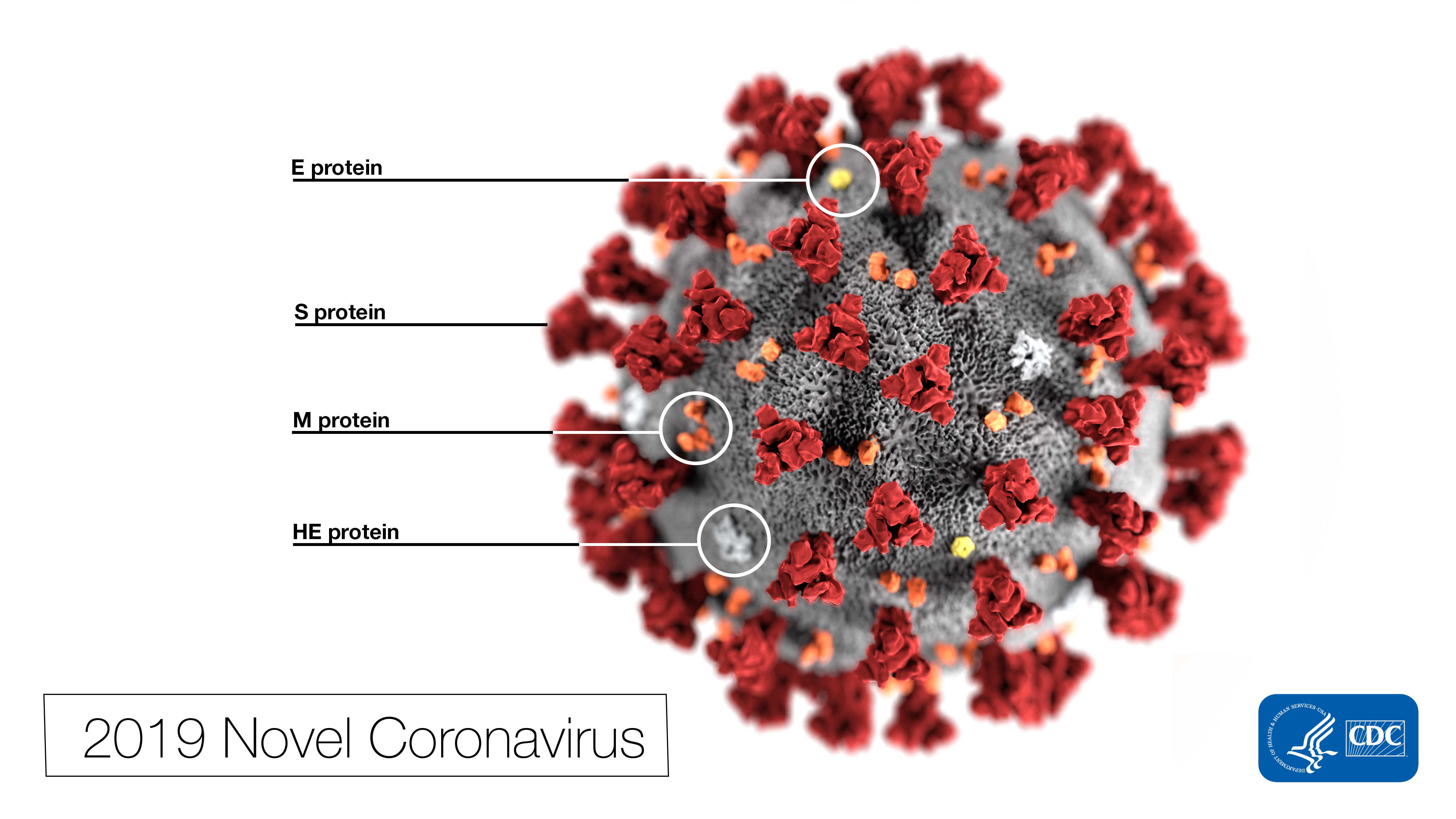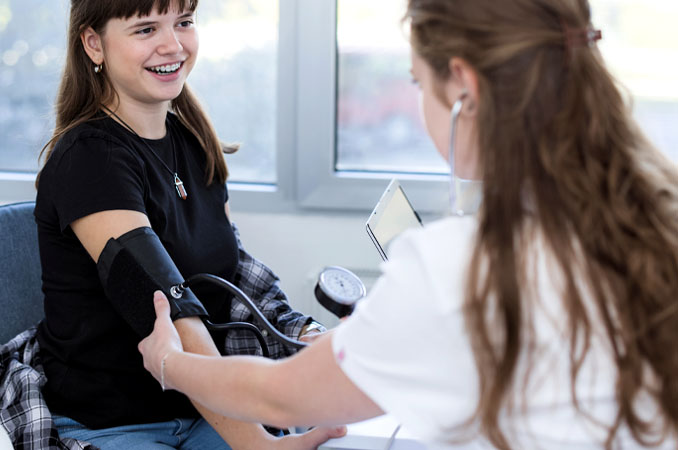Coronavirus Update
Updated: March 17, 2020
The national Centers for Disease Control and Prevention (CDC) and the Mississippi State Department of Health continue to closely monitor an outbreak of respiratory illnesses caused by a novel (new) coronavirus (COVID-19) in Wuhan City, Hubei Province, China which has resulted in several thousand infections and numerous deaths.
CDC Recommendations
For the most up to date CDC recommendations click here.
March 15, 2020 - Large events and mass gatherings can contribute to the spread of COVID-19. Attendees at these events can introduce the virus to new communities. Examples of large events and mass gatherings include conferences, festivals, parades, concerts, sporting events, weddings and other types of assemblies.
The CDC is recommending organizers (whether groups or individuals) cancel or postpone in-person meetings or events of 50 people or more for the next 8 weeks.
Mississippi Residents
For the most up to date Mississippi State Department of Health recommendations click here.
The CDC and the Mississippi State Department of Health are working together to detect, contain and limit the spread of COVID-19 in the United States and Mississippi
The Mississippi State Department of Health has established the Mississippi Coronavirus Hotline to provide convenient answers to questions about COVID-19 by phone. The operating hours are 8:00 a.m. - 5:00 p.m., Monday through Friday 1-877-978-6453.
The Mississippi State Department of Health is aggressively responding to the rapidly evolving COVID-19 situation. With other state agencies, it has activated emergency operations in order to prepare for possible person-to-person transmission of COVID-19 in Mississippi.
United States
The CDC and many public health labs in the United State are now testing for COVID-19, and with this increase in testing, more cases of COVID-19 are likely to be identified in the coming days including more instances of an outbreak in communities. Although there isn't a vaccine, we can all do our part to prevent the spread of the virus.

How to protect yourself
There is currently no vaccine to prevent COVID-19 infection. The best way to prevent infection is to avoid being exposed to this virus. However, the CDC always recommends everyday preventive actions to help prevent the spread of respiratory viruses, including:
- Wash your hands
- Wet your hands with clean, running water. Apply soap. Lather your hands, including the back, between your fingers and under your nails. Scrub for at least 20 seconds. Use an alcohol-based hand sanitizer that contains at least 60% alcohol if soap and water are not available.
- Stay home when you are sick.
- Cover your cough or sneeze with a tissue, then throw the tissue in the trash and wash your hands. If you don't have a tissue, cough or sneeze into your elbow rather than your hands.
- Clean and disinfect frequently touched objects and surfaces, such as doorknobs, countertops, computers, phones and bathroom surfaces.
- Masks offer some protection as they block liquid droplets. However, they do not block smaller particles that can pass through the material of the mask. The CDC does not recommend that people who are well wear a facemask to protect themselves from respiratory diseases, including COVID-19.
- Stay in good overall health by eating right and staying active. If you are living with diabetes, heart disease or other condition, keep in touch with your doctor and stay current with your treatment.
What are the symptoms
For confirmed COVID-19 infections, reported illnesses have ranged from people being mildly sick to people being severely ill and dying. Symptoms can include:
- Fever
- Cough
- Shortness of breath
The CDC believes at this time that symptoms of COVID-19 may appear in as few as 2 days or as long as 14 after exposure. As this is viral pneumonia, antibiotics are of no use. The antiviral drugs we have against flu will not work. Recovery depends on the strength of the immune system.
Why you should be informed
Outbreaks of novel virus infections among people are always of public health concern. The risk from these outbreaks depends on characteristics of the virus, including how well it spreads between people, the severity of resulting illness, and the medical or other measures available to control the impact of the virus (for example, vaccine or treatment medications).
How does it spread?
COVID-19 spreads from person to person similar to the flu. But unlike the flu, there is no vaccine which means it is more difficult for vulnerable members of the population - elderly people or those with existing health problems - to protect themselves.
What do I do if I think I'm sick?
First and foremost, stay home if you or a loved one are sick, have a cough, fever or are not feeling well except to get medical care. Do not go to work, school, or public areas. Avoid using public transportation, ride-sharing, or taxis. (source: CDC)
If your symptoms are not severe, it is best to call your Primary Care Provider before you go in. They can tell you what to do and where to go. If you are severely ill and need to go to the clinic or hospital right away, you should still call ahead. This way the staff can care for you while taking steps to protect others.
Stay calm and be vigilant.
The most important thing to remember is to stay calm but be prepared. Follow the same precautions as you would with the flu. It's hard to predict where future outbreaks might happen but being prepared is the best thing you can do to stay healthy. If you or others in your family are anxious about Coronavirus, keep in mind most people do not get severely ill or die from it. There are things you can do to lower your risk, try not to panic.
Everyone reacts differently to stressful situations.
The emotional impact of an emergency on a person can depend on the person's characteristics and experiences, the social and economic circumstances of the person and their community, and the availability of local resources. People can become more distressed if they see repeated images or hear repeated reports about the outbreak in the media
- Limit news intake. Avoid excessive exposure to media coverage of COVID-19
- Stay healthy and practice self-care. Take deep breaths, stretch or meditate. Try to eat healthy, well-balanced meals, exercise regularly, get plenty of sleep and avoid alcohol and drugs. Engage in activities that redirect your thoughts, such as a favorite hobby, reading, or listening to music.
- Get the facts. Stay informed with the latest updates through the CDC and Mississippi Department of Health
- Make time to unwind and remind yourself that strong feelings will fade. Take breaks from watching, reading, or listening to news stories. It can be upsetting to hear about the crisis and see images repeatedly. Try to do some other activities you enjoy to return to your normal life
- Connect with others. Share your concerns and how you are feeling with a friend or family member. Maintain healthy relationships.
- Maintain a sense of hope and positive thinking
Resources:
- COVID-19 What you need to know
- What to do if you are sick with COVID-19
- Workplace, Home and School Guidance
- Guidance for People at High Risk
- COVID-19 Fact Sheet
- Stop the Spread of Germs
- The President's Coronavirus Guidelines for America




 Women's Health
Women's Health Eat Healthy
Eat Healthy Exercise
Exercise Health & Wellness Articles
Health & Wellness Articles